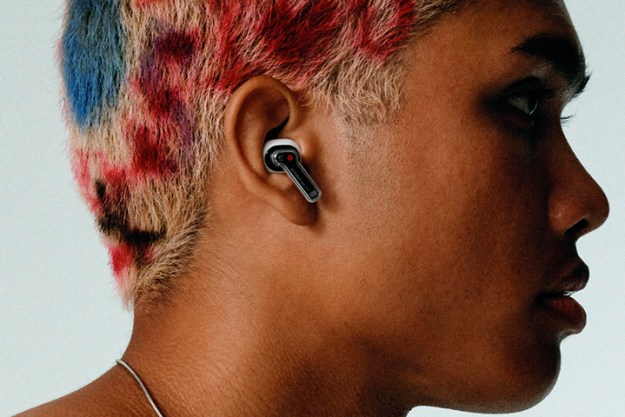Earlier this year, we reviewed the Erato Apollo 7 earbuds, and while they weren’t perfect, there were plenty of things to like. The company isn’t resting on its laurels, and we got the chance to spend some time with its newest models, the Muse 5 and Rio 3, both of which were officially announced on Wednesday.
While we haven’t had the type of hands-on time we’d require to form solid opinions, from our first impressions, the sound performance is relatively solid, and both of these offer one major improvement over the Apollo 7: battery life. This comes at the cost of size, so both the Muse 5 and Rio 3 are larger than their predecessor, but we found the Muse to actually be more comfortable than the Apollo 7.
Erato says that the Muse 5 are meant for listeners “with an active lifestyle who are always on the go.” To this end, the earphones use patented FitSeal Sleeves to stay put in the wearer’s ear. Three sets of these sleeves are included, which along with multiple included ear tips makes for a total of nine different combinations to help the listener find a perfect fit.
Unlike the Apollo 7’s roughly three hours of playback, the Muse 5 offer either seven hours of talk time or four hours of listening time. Like the Apollo 7, the Muse 5 includes a portable magnetic charging case, and this one allows the earphones to be fully charged two times before you need to plug in to recharge.
The Rio 3 takes the emphasis on an active lifestyle even further, using over-ear hooks to help the earphones stay in place. To keep things simple while working out, the Rio 3 include a built-in remote to easily switch songs, change volume, and interact with Siri or Google Now. This model offers up to eight hours of talk time or six hours of playback, though no charging case is included.
The Muse 5 and Rio 3 are both available for pre-order now via Indiegogo. Following the official launch, the Muse 5 will retail for $180, while the Rio 3 will sell for $130, but those purchasing via Indiegogo will get them at a reduced price of $80 and $70, respectively. For more details, see the Indiegogo page.
Editors' Recommendations
- Marshall’s latest headphones get 100 hours of battery life and wireless charging
- Earfun Free Pro 3 wireless earbuds will make you question Apple’s prices
- Niche Canadian company takes on Sony with new wireless earbuds and headphones
- Adidas gives its wireless on-ear workout headphones a solar-powered boost
- Get ready for a new generation of wireless headphones: Bluetooth LE Audio is now a done deal


